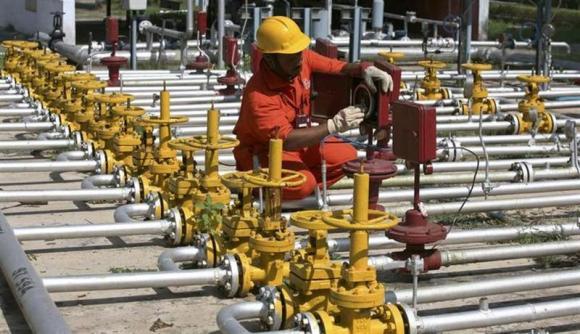
ROSNEFT DEAL MORGAN STANLEY

BLOOMBERG. U.S. and European Union sanctions against Russia won't stop OAO Rosneft from buying Morgan Stanley's oil sales unit, Chief Executive Officer Igor Sechin said, underscoring the limitations of the punitive measures.
Regulators are looking at the deal, and "Rosneft is hoping for a positive result, but we're ready for any decision," Sechin told reporters in Tokyo today. "We don't expect an effect" from sanctions on the deal, he said earlier.
President Vladimir Putin has shrugged off U.S. and European Union travel and financial restrictions on officials, signing a treaty to annex the Crimean peninsula from Ukraine amid the worst confrontation between the Kremlin and the West since the Cold War. U.K. Prime Minister David Cameron said yesterday he'd push European leaders to impose stronger measures.
"An introduction of a large number of sanctions against individuals and especially corporates is not justifiable in any way," Sechin said, warning that harsher steps would be damaging for all sides. "It will only deepen it, sucking in more and more people like a spiral. It would bring harm to all parties. That's why we are calmly looking at this situation. It cannot last long."
Morgan Stanley (MS) agreed to sell its global oil merchant unit to state-run Rosneft, Russia's largest crude producer, in December, and about 100 front-office executives in the U.S., U.K. and Singapore will move to the group, the New York-based firm said at the time. The terms of the deal weren't disclosed.
Defending Assets
While Rosneft's Ukrainian assets, which include an oil refinery, haven't been affected by turmoil in the country and the standoff over the Crimea region, the company is ready to defend its assets, Sechin said.
Russia has been increasingly turning to Asia to balance its reliance on European markets, where demand slowed and political leaders have sought to decrease energy dependence on its eastern neighbor.
While Japan has joined EU and U.S. measures with sanctions of its own -- by freezing talks with Russia on easing visas and cooperation in industries including defense -- the move will hardly impact economic ties, said Alexey Repik, co-chairman of Business Russia and one of the organizers of a Russia-Japan business forum that took place in Tokyo today.
Japanese Sanctions
"The Japanese sanctions show that there's a disagreement on our positions on Crimea, but they are not so harsh as to suggest we have a terrible disagreement," Repik said on the sidelines of the forum in Tokyo. "Sanctions shouldn't hurt business and social interaction, and you can see that we had a record turnout for this forum."
Repik, also chairman of OAO R-Pharm, Russia's top maker of drugs used in domestic hospitals, signed an accord to invest at least $5 million in oncological research at Japan's Nagoya University. The accord was one of 12 signed between companies from the two countries today. Marubeni Corp. agreed to look at exports of Russian grain from the country's Far East ports together with United Grain Corp. and Far Eastern Shipping Co.
"There is a high level of trust between our president and the prime minister here, and that helps business between the two countries to develop," Sechin said today at the forum as part of a pitch to Japanese investors. "Rosneft welcomes Japanese partners across all areas of energy production from extraction, to infrastructure, logistics and others."
LNG Buyers
Rosneft is aiming to attract Japanese buyers first and foremost for a liquefied natural gas plant it plans to build at Sakhalin-1 field, Sechin said. The plant will produce at least 5 million metric tons of LNG, rising to capacity of 10 million tons, and may require $10 billion in investment, he said.
The Sakhalin-1 LNG project will start production in 2018 to 2019, Sechin said.
Russian politicians are "reasonable" and the crisis in Ukraine is unlikely to last into the long term, Sechin said.
Instead, Sechin said he saw the volatility in the Russian stock market as a "business opportunity" and along with other top managers of Rosneft bought the oil company's shares after they fell on news around Crimea, the CEO said.
"We think it's a good investment," Sechin told the forum. "We're undertaking massive seismic works right now that should allow us to boost the company's reserves."




